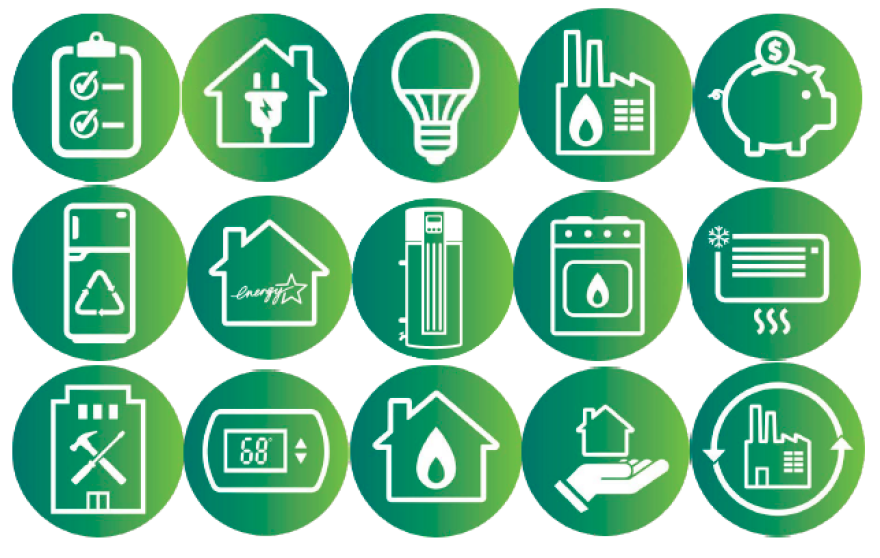New Hampshire's electric and natural gas utilities are proposing an increase to their energy efficiency savings goals for the next three years, in a plan that aims to cut costs and carbon emissions but could slightly increase customers’ bills in the short-term.
The proposal centers on the utility-run NHSaves rebate program, which gives ratepayers incentives to use less energy by upgrading things like appliances, insulation or machinery.
The utilities' new goal for that program would have them sell 5% less electricity and 3% less gas between 2021 and 2023. The current goal, spanning 2018 to 2020, was to sell 3% less electricity and 2% less gas.

Eversource, Unitil, Liberty Utilities and the New Hampshire Electric Cooperative filed their proposal with the Public Utilities Commission Tuesday. They say it would save customers $1.3 billion overall – more than a third of the total amount they’ve saved with this program since 2002.
And they say reducing New Hampshire’s gas and electricity use, particularly in the summer, will lower carbon emissions by the equivalent of taking nearly a million cars off the road for a year.
CATCHING UP TO NEIGHBORS
State utility consumer advocate Don Kreis says New Hampshire lags behind its neighbors in using energy efficiency as a cost-cutting measure and climate solution. He calls the new goals "laudably ambitious."
“We are in a very cold corner of the country where energy is very expensive,” Kreis says. “That’s where energy efficiency can have the most impact.”
New Hampshire scored 20 out of 50 for its energy efficiency policies in the 2019 state scorecard from a key industry trade group. It was a one-place improvement from the state’s rank in 2018 and 2017.
Massachusetts has the top possible rank on the 2019 scorecard, and Vermont and Rhode Island each earn a three out of 50. New Hampshire’s utilities say they “reviewed other states’ energy efficiency portfolios” for inspiration on their 2021-2023 plan.
Is there a climate story you'd like NHPR to cover? Email the By Degrees team at climate@nhpr.org
The new proposal aims to fund more enforcement of energy standards in local building codes as one way to meet the new goals. It also includes new plans to actively work with customers on using less energy at specific times as a way to lower demand.
The plan suggests new ways to work with manufacturers on retrofitting and streamlining industrial facilities, and propose expanded efficiency options for small businesses.
It also includes new job training and workforce development plans, and more flexible ways for customers to participate in savings programs.
SHORT-TERM BILL INCREASES
The utilities get an incentive for shareholders if they meet their goals, and they can recoup the entire cost of doing so onto ratepayers through the System Benefits Charge on electricity bills and the Local Delivery Adjustment Charge on gas bills.
These generally account for a few dollars of residents’ average monthly costs and, according to Kreis, are generally “not a significant driver of bill increases.”
This proposal would likely add to those costs – which Kreis says could draw concern from the PUC in the current economic crisis.
“We want to be very careful not to raise utility rates in a gratuitous or unnecessary way,” he says. “At the same time, I think ratepayer funded energy efficiency has great potential to help drive the economic recovery in New Hampshire.”
The energy efficiency industry has been hard hit by the pandemic and has asked lawmakers for help restoring jobs and incentivizing more retrofitting work. Kreis says consumer savings are also a big economic benefit.
The proposal is subject to PUC hearings and approval by the end of the year.
NHPR is doubling down on covering climate change. Support this work - make a donation today.








